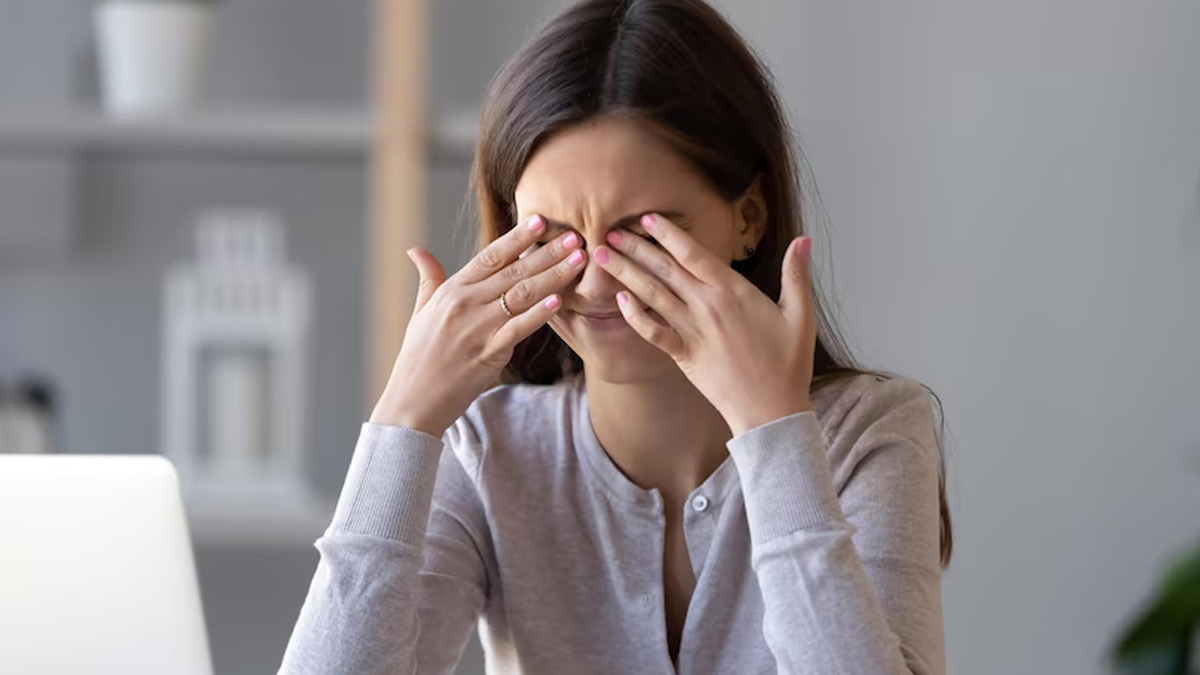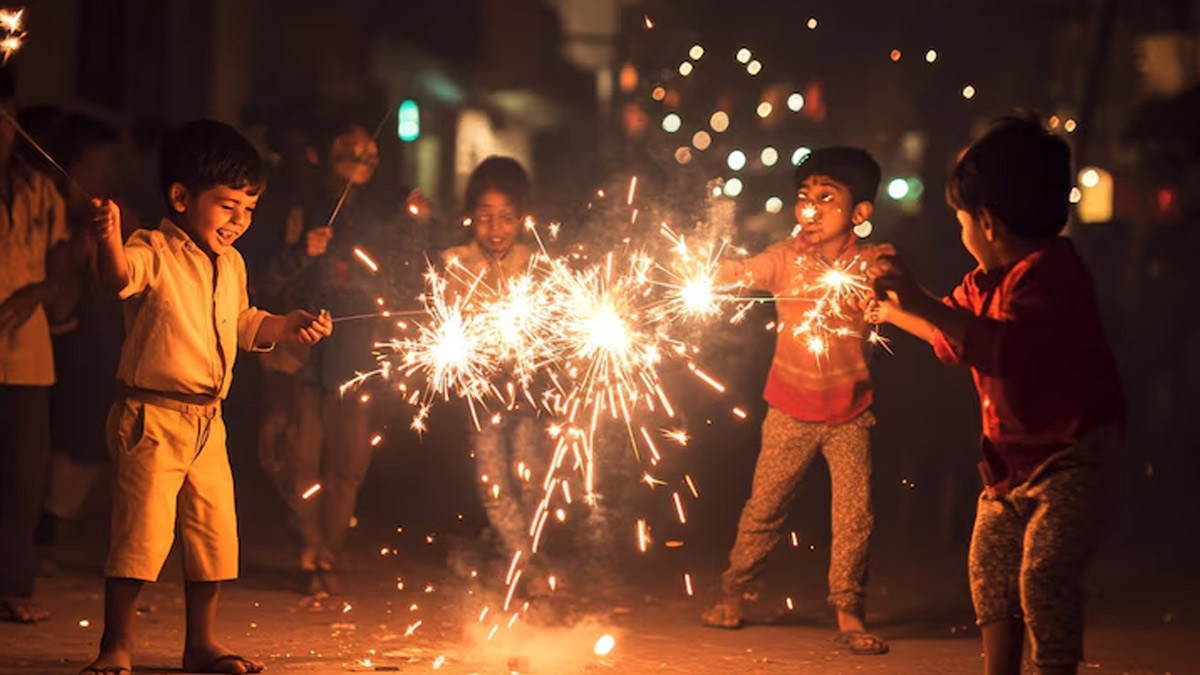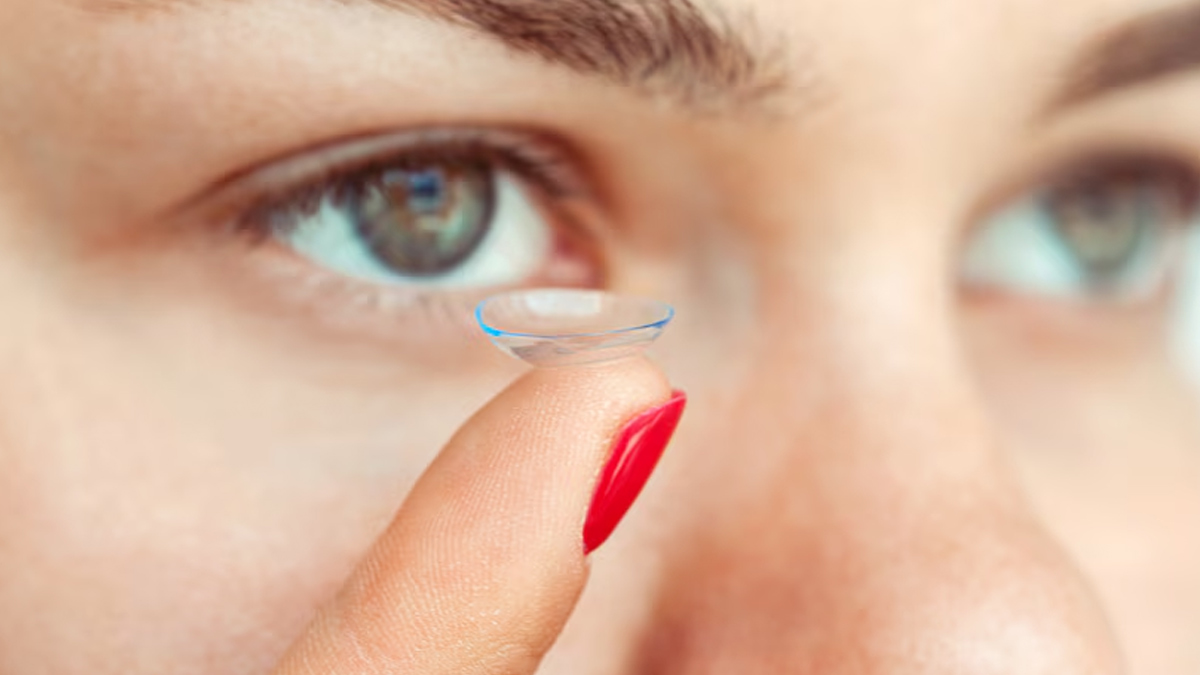
Diwali, the much-awaited festival of lights, brings joy, festivities, and a renewed spirit. However, along with the vibrant lights and celebrations, the period also sees a concerning spike in air pollution levels. This rise, fueled by firecracker smoke, vehicle emissions, generator fumes, and stubble burning, can cause significant harm to eye health, leading to irritation and even infections.
Table of Content:-
To understand how to manage eye irritation amid low Air Quality Index and increase in pollution due to firecrackers ahead of Diwali, OnlyMyHealth team interacted with Dr Neeraj Sanduja, MBBS, MS, Ophthalmologist, and Eye Surgeon, Viaan Eye and Retina Centre, shares expert advice on how to protect your eyes amid the heightened pollution.
Common Eye Problems During Diwali

Increased air pollution can lead to several common eye-related issues, which, while often minor, can become quite uncomfortable if left unchecked:
Eye irritation and redness: Pollutants like smoke and dust particles can irritate the eyes, causing redness, itching, and a burning sensation. Dr Sanduja warns, “Pollution during Diwali significantly raises the risk of eye discomfort, especially due to the high concentration of fine particulate matter.”
Dry eyes: Low humidity combined with exposure to pollutants can cause the eyes to feel dry and uncomfortable, often leading to blurred vision. Dr Sanduja advises, “Artificial tears can be an effective solution to counteract dryness, especially for those who frequently experience dry eyes.”
Eye infections: Particulate matter, pollen, and other airborne contaminants can increase the risk of infections like conjunctivitis, commonly known as pink eye.
Practical Tips for Eye Protection
While pollution levels can be daunting, certain preventive steps can help mitigate eye irritation and discomfort:
Stay Indoors During Peak Pollution Hours: Firecracker smoke typically peaks between 10 pm and 2 am. If possible, avoid outdoor activities during these hours to minimise exposure.
Wear protective eyewear: “Sunglasses or goggles can act as a barrier against pollutants, reducing the chance of foreign particles reaching the eyes,” suggests Dr Sanduja.

Flush eyes with water: Rinsing eyes with clean water can help wash away any irritants that may have entered the eyes after exposure to smoke or dust.
Use artificial tears: Eye drops can be incredibly soothing, especially for those suffering from dryness. Dr Sanduja notes, “Using artificial tears multiple times a day can maintain moisture and alleviate irritation.”
Avoid rubbing your eyes: If your eyes feel itchy or irritated, pat them gently instead of rubbing. Rubbing can worsen irritation and increase the risk of infection.
Moisturise your eyes: Apply hydrating eye creams or gels around the eyes to keep them moisturised, particularly helpful during the dry Diwali season.

Avoid contact lenses: Wearing contact lenses can amplify irritation during high-pollution days, as particles can get trapped between the lens and eye. Switch to glasses if possible.
Also read: Home Remedies For Eye Allergies: Doctor Shares Tips For Eye Care
Seek Medical Attention if Necessary
Dr Sanduja emphasises, “In cases of severe eye irritation, vision disturbances, or persistent discomfort, consulting an eye specialist is crucial.” Immediate medical attention is essential if symptoms escalate, as it can prevent long-term complications.
By following these protective measures, you can safely enjoy the beauty of Diwali while minimising the harmful effects of pollution on your eyes. Make it a priority to care for your eyes, ensuring a joyful and irritation-free festive season!
Also watch this video
How we keep this article up to date:
We work with experts and keep a close eye on the latest in health and wellness. Whenever there is a new research or helpful information, we update our articles with accurate and useful advice.
Current Version